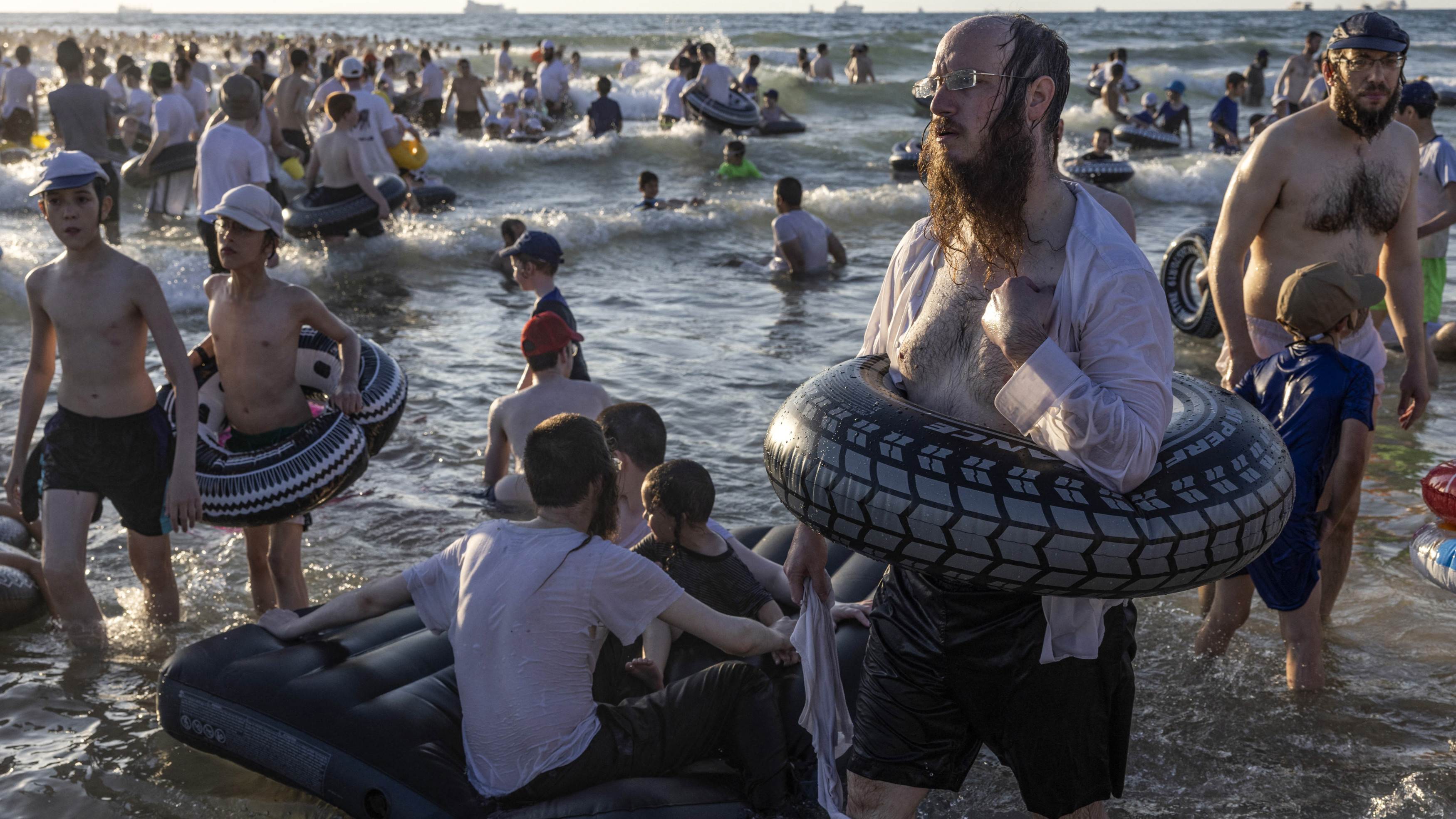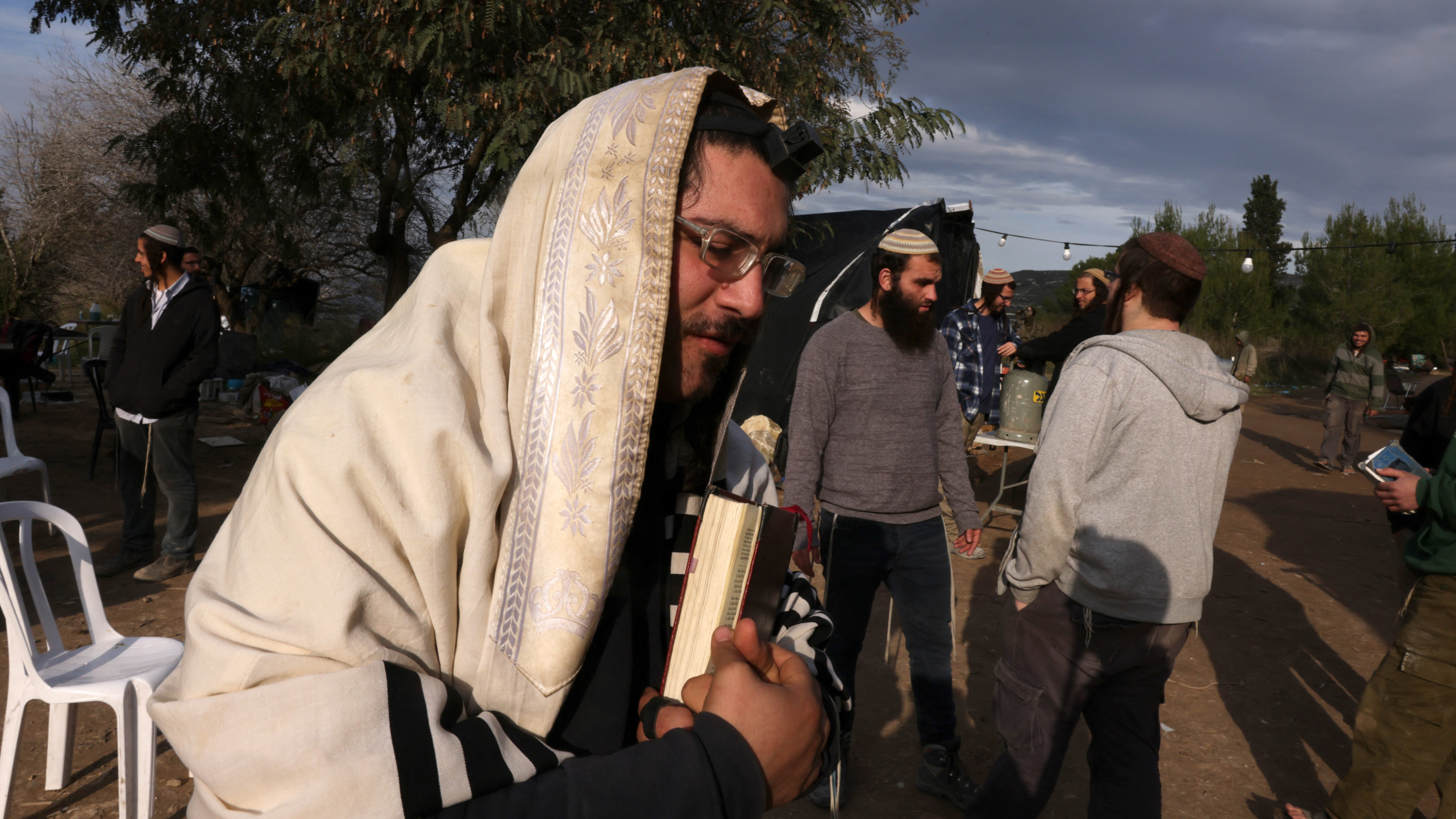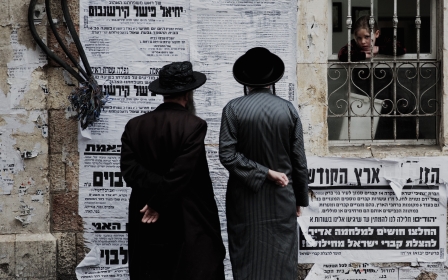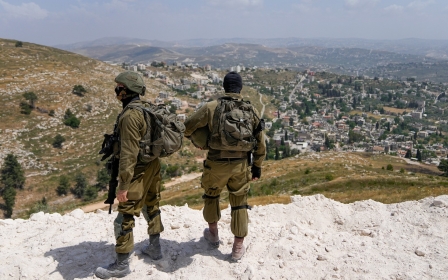Is Israel on its way to becoming a religious 'halachic state'?
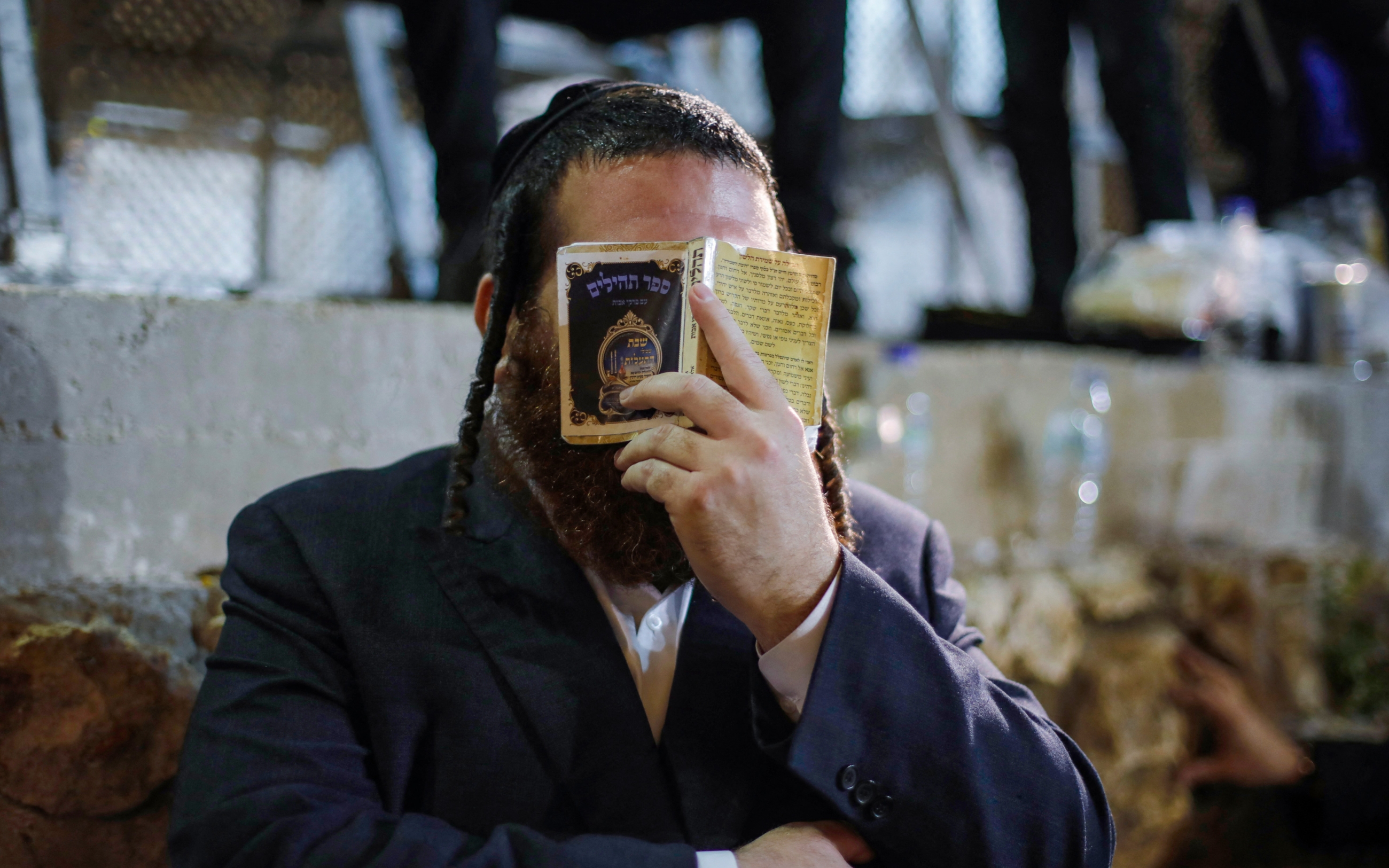
A plan by an Israeli minister to establish sex-segregated hours for swimming at natural springs has sparked fear and debate among the secular majority: is the country turning into a religious state?
This is one of many concerns that feminist movements have had since the current ultra-Orthodox and nationalist coalition took office late last year.
Idit Silman, Israel’s environmental protection minister from Prime Minister Benjamin Netanyahu’s Likud party, announced her plan for the segregated swimming hours earlier this month.
It would allow visitors to swim at two nature reserves near Jerusalem without members of the opposite gender or sex.
Religious women in Israel, especially from the ultra-Orthodox community (or Haredim), do not bathe in the sea or pools in the presence of men.
New MEE newsletter: Jerusalem Dispatch
Sign up to get the latest insights and analysis on Israel-Palestine, alongside Turkey Unpacked and other MEE newsletters
A large number of Heredi men also avoid bathing in the presence of women.
Silman’s plan - which has been postponed pending legal review - was not meant to affect the normal hours that are open to everyone, but to add two hours daily, to be divided between men and women.
However, many people in the secular liberal Israeli public view actions by the current government with suspicion.
So some see Silman's initiative as a first step towards completing the more great and threatening plan: to turn Israel into a halachic (Jewish law) state, meaning it will be governed according to the strictest laws of Orthodox Judaism, including gender segregation in the public sphere.
On Sunday, an Israeli public bus driver ordered teenage girls to sit at the back of the bus and cover themselves up, saying that the bus caters to ultra-Orthodox passengers.
Similar incidents of sex segregation on public transportation have become more common recently, putting the relationship between religion and the state in Israel under the spotlight.
Secular-religious tensions
The roots of the conflicts between the ultra-Orthodox Jews and the general public in Israel go back as far as the early 1950s.
That’s when David Ben-Gurion, the country’s first prime minister, agreed to exempt 400 ultra-Orthodox youth from military service so that they can study the Torah in Talmudic schools, or yeshivas.
In 1977, the Likud government under Menachem Begin scrapped the 400-student limit on who can qualify for the exception, relieving tens of thousands of Heredi youth from military service.
Based on the concept of Torato Umanuto, or “Torah study is his occupation”, the yeshiva students are freed from all obligations and receive an allowance from the state to devote themselves exclusively to Torah studies.
But this arrangement was established in the early years after the founding of the State of Israel and came against the backdrop of the elimination of yeshivas during the Holocaust.
Many today view yeshivas as a burden on the public and do not support financing them any longer since they don’t serve in the military.
This has created distrust, and even hatred, towards the ultra-Orthodox community in Israel.
Ultra-Orthodox streams
The Haredim society maintains a distinct lifestyle from the rest of the Israeli population, and with most men spending their time studying the Torah instead of working, many ultra-Orthodox households are defined as poor.
There are about 1.28 million ultra-Orthodox Jews in Israel, comprising around 13 percent of Israel’s 9.45 million population.
According to the forecast of the Central Bureau of Statistics (CBS), they will make up about a third of Israel's population in 50 years.
Among the ultra-Orthodox public, there are three main groups: the Lithuanians, the Hassidim, and the Sephardi Haredim, who have been represented by the Shas party since 1984.
Lithuanians consecrate only the study of the Torah, engage in it all day long, and do not work for a living.
Hassidim sanctify the value of prayer, holiness and mysticism. They generally withdraw from the outside world and adhere to conservative clothing, but unlike the Lithuanians, most of them work for a living.
Betzalel Stauber, who leads government training programmes for the Haredi public, rejects the suggestion that ultra-Orthodox Jews want to turn Israel into a halachic state.
"They ask that they not be prevented from leading their lives according to the Torah,” Stauber, who is Orthodox Lithuanian, said.
Instead, the concern to some comes from another stream of ultra-Orthodox Jews, the religious Zionists, known as Hardalim - that is Haredim with a nationalist outlook.
The religious Zionists
The Hardalim include many who live in illegal settlements in the occupied West Bank.
Many of them are teenagers involved with the Hilltop Youth, an extremist religious-nationalist settler group active in attacks against Palestinians and the establishment of settlements on Palestinian land.
They are supported by religious Zionist parties, including Otzma Yehudit, which is led by the far-right National Security Minister Itamar Ben Gvir, and the Noam party.
While Otzma Yehudit, or Jewish Power, focuses on the struggle against Palestinians under Israeli control, the Noam party focuses on the struggle against feminism, liberalism, LGBTQ+ and the mixing of men and women.
Traditionally, ultra-Orthodox leaders opposed expressions of nationalism - including the move to settlements. But since the emergence of the religious Zionist movement, this has changed rapidly.
Today, there is broad support for settlements among the ultra-Orthodox public, mainly due to efforts from religious Zionist groups.
Among the leaders of this change is US-born Rabbi Yitzchak Ginsburgh, an influential figure known for praising the perpetrator of the 1994 massacre in Hebron's Ibrahimi mosque that killed 29 Palestinian worshippers, and for endorsing a book outlining the “legal contexts” in which Jews can kill non-Jews.
Ginsburgh sees the Jewish state as a tool for the realisation of the central mission of the Jewish people: settling in the land of Israel and establishing the rule of Halakha.
It’s this stream in the ultra-Orthodox public that concerns many in the secular majority, especially with religious Zionist parties playing a central role in shaping government policies today.
Bezalel Smotrich, leader of the biggest religious Zionist party and the finance minister, had publicly stated the desire to move into a religious state in the past.
“Torah laws are far superior to the ‘halachic state’ founded here by Aharon Barak,” he said in 2019, referring to the controversial former head of the Supreme Court, who is often a target of right-wing ire.
“Of course in the long run I want the State of Israel to conduct itself according to Torah laws. That will happen when the nation wants it, and I am confident that it will want it when it sees how Torah law is just and humane.”
This article is available in French on Middle East Eye French edition.
Middle East Eye delivers independent and unrivalled coverage and analysis of the Middle East, North Africa and beyond. To learn more about republishing this content and the associated fees, please fill out this form. More about MEE can be found here.


